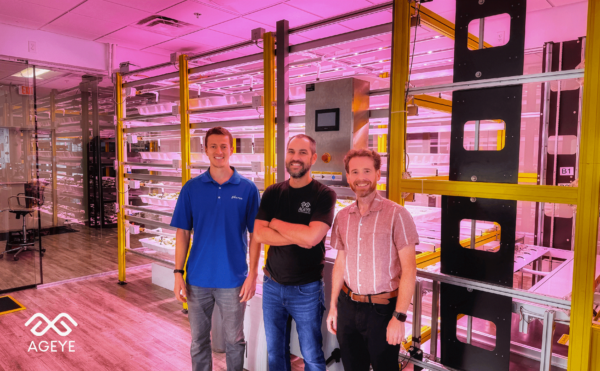AGEYE Technologies Collaborates With 2 Universities On Revolutionary Sensor Technology for Indoor Agriculture
AGEYE Technologies (AGEYE), in partnership with the University of Colorado at Boulder and the University of California Berkeley, has announced collaboration on an innovative project titled “Novel Sensors for Efficient and Scalable Production of Indoor Crops.” This initiative is set to redefine the future of agriculture by introducing a game-changing sensor technology that promises to enhance crop quality, yield, and sustainability.
The commercial potential of this National Science Foundation (NSF) funded Partnerships for Innovation – Research Partnerships (PFI-RP) project is monumental. It aims to drastically reduce waste and energy consumption in agriculture while ensuring superior crop quality. The pioneering sensor technology, developed using print-based manufacturing approaches, will seamlessly integrate nutrient, temperature, and pH sensors. These advanced sensors are designed to detect individual nutrients, such as nitrogen, phosphorous, and potassium, providing a granular view of the growing media’s health. This level of precision will pave the way for heightened automation in both outdoor and indoor agricultural operations, ensuring that crops receive the exact nutrients they need to thrive.
“Our vision is to revolutionize the way we understand and interact with crop systems. This technology will empower growers with real-time, accurate data, enabling them to make informed decisions about fertilizer and water management,” said Brian Hannon, Head Corporate Grower at AGEYE.
Dr. Gregory Whiting, Associate Professor of Mechanical Engineering at the University of Colorado at Boulder, added, “This collaboration is a testament to the power of interdisciplinary partnerships. By merging the expertise of academia and industry, we’re poised to bring forth a technology that could reshape the agricultural landscape. We’re proud to be working with AGEYE on this transformative journey.”
This project addresses a crucial gap in the agricultural sector: the need for efficient and reliable data acquisition. By leveraging this state-of-the-art sensor technology, the initiative aims to eliminate the constraints of manual data collection, thus reducing human error and optimizing operations. The research objectives encompass the comprehensive design, development, manufacturing, and validation of nitrogen/phosphorous/potassium (NPK) and electrical conductivity, pH, temperature (EC/pH/T) sensors.
The collaboration with an industry partner specializing in agriculture ensures that the developed technology is primed for commercial operations, adaptable to diverse environmental conditions, and suitable for various agricultural scenarios. Preliminary experimentation and validation have already showcased the immense capabilities of these sensors, from enhanced data accuracy to continuous in-situ monitoring and improved maintenance procedures.
As we move forward, this project serves as a testament to the rising prominence of Controlled Environment Agriculture (CEA) in the global agricultural landscape. No longer a niche or experimental approach, CEA is solidifying its position as an indispensable and viable pillar of modern agriculture, ensuring food security, sustainability, and economic growth for generations to come.
More information on AGEYE can be found at https://ageyetech.com/
